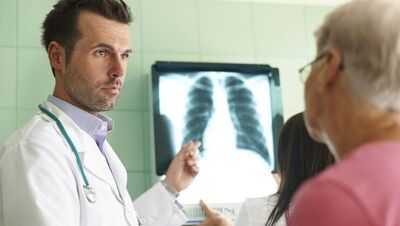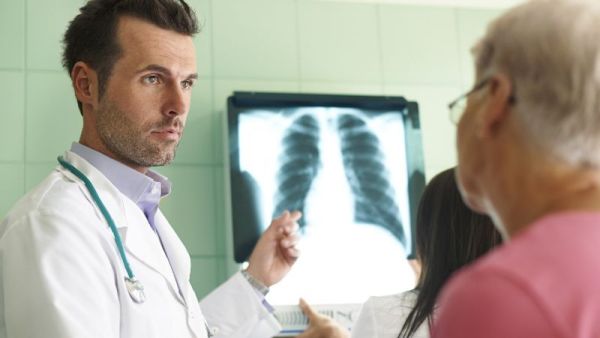
 Lung Cancer Hits Non Smoking Indians
Lung Cancer Hits Non Smoking Indians
Lung cancer remains a leading cause of cancer-related deaths worldwide, demanding focused attention and unwavering commitment to improving outcomes. A clear and nuanced understanding of this complex disease is crucial, encompassing risk factors, early detection strategies, advancements in treatment, and essential support systems.
Understanding the Scope of the Problem
Lung cancer's impact is undeniable. As per WHO reports, In 2020, it claimed an estimated 1.8 million lives worldwide, representing a significant portion of all cancer deaths. GLOBOCAN reported over 2.4 million new cases in 2022, highlighting the ongoing global burden. This high mortality rate underscores the critical need for increased awareness and proactive measures.
Beyond Smoking: A Multifaceted Risk Profile
While smoking remains the primary risk factor, responsible for approximately 85-90% of cases, lung cancer can also affect non-smokers. It's crucial to understand the broader spectrum of risk factors:
Second-hand Smoke: Exposure significantly increases risk, even without direct smoking.
Radon: This naturally occurring radioactive gas is a leading cause of lung cancer in non-smokers. Home testing and mitigation are crucial.
Air Pollution: Particulate matter (PM2.5), gases, and airborne toxins damage lung tissue, increasing risk, especially in heavily polluted areas.
Occupational Hazards: Exposure to asbestos (causing mesothelioma), arsenic, radon, and industrial chemicals like chromium and cadmium significantly elevates risk, particularly when combined with smoking.
Genetic Predisposition and Family History: Inherited genetic factors can increase susceptibility.
Early Detection: A Lifeline for Lung Cancer Patients
Early-stage lung cancer often presents with subtle symptoms like persistent cough, shortness of breath, or unexplained weight loss, often leading to delayed diagnosis. Low dose computed tomography (LDCT) scans have revolutionized screening, reducing lung cancer deaths in high-risk individuals.
Treatment Advances: Offering New Hope
Significant breakthroughs in lung cancer treatment have transformed the landscape of care:
Immunotherapy: Harnessing the body's immune system to fight cancer, particularly through checkpoint inhibitors like atezolizumab, pembrolizumab, nivolumab, and durvalumab, can lead to durable responses, although immune-related side effects are possible.
Targeted Therapies: Drugs like ALK, EGFR, ROS1, and BRAF inhibitors target specific genetic mutations driving cancer growth, offering personalized treatment with potentially fewer side effects than traditional chemotherapy. Biomarker testing is essential to identify appropriate targeted therapies.
These newer treatments offer a more precise and personalized approach than traditional chemotherapy, affecting all rapidly dividing cells.
Holistic Support: Addressing the Multifaceted Needs of Patients
A lung cancer diagnosis impacts all aspects of a patient's life.
Comprehensive support systems are vital:Medical Support: Specialized cancer centers, oncologists, surgeons, radiation oncologists, and supportive care services provide comprehensive medical management.
Emotional and Psychological Support: Counseling, support groups, and mental health professionals address the emotional toll of cancer.
Financial Assistance: Resources like insurance, NGOs, and charitable foundations can help manage the financial burden of treatment.
Nutritional Support: Registered dietitians and nutrition programs help maintain strength and manage treatment side effects.
Palliative Care: Focuses on improving quality of life for patients with advanced lung cancer, managing symptoms, and providing emotional and spiritual support.
The Horizon of Lung Cancer Research
Ongoing research fuels hope for further advancements:
Early Detection: Improved biomarkers and advanced imaging techniques aim for earlier, more accurate diagnoses.
Immunotherapy Enhancement: Research focuses on increasing effectiveness, exploring combination therapies, and overcoming resistance.
New Targeted Therapies: Development continues, focusing on specific genetic drivers and improving treatment for brain metastases.
Treatment Refinement: Less invasive surgical techniques and optimized treatment sequencing are being explored.
Clinical Trials: Ongoing trials evaluate new treatments and strategies.
By fostering awareness, promoting early detection, supporting research, and ensuring access to comprehensive support systems, we can collectively work towards a future where lung cancer outcomes are significantly improved, and lives are saved.
-By Dr. Vinayak Maka, HOD & Senior Consultant – Department of Medical Oncology, Ramaiah Institute of Oncosciences, Ramaiah Memorial Hospital